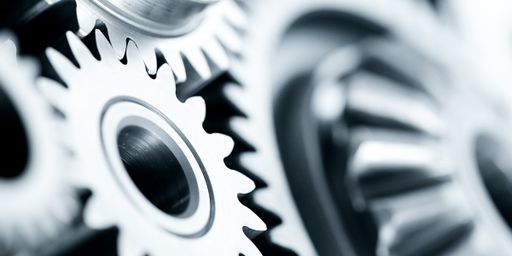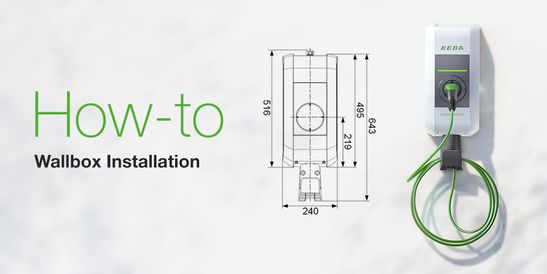"Charging simply works!"
- Business
- Billing
- Charging
- Success Story
- 14.9.2023
- Reading Time: {{readingTime}} min
- Share Article

Contents
GUGLER Water Turbines GmbH has its headquarters in Feldkirchen on the Danube. This geographical advantage is crucial, as the Austrian company's products are used worldwide to generate electricity from the power of water. The history of the family-owned company goes back almost 100 years, and today around 60 employees develop and build turnkey plants and the entire electromechanical equipment for hydroelectric power plants, notably these vital components: turbine, generator, switchgear and transformer.
The task: PV surplus charging for employees
With its power plants and turbines, GUGLER ensures that electrical energy can be produced in a climate-friendly way in Latin America, Africa, Asia and Europe. But what about emissions reduction at the company's own site? "Since we as a company are active in this field, we also want to commit ourselves directly to sustainability," explains Managing Director Alois Gugler. Consequently, three years ago, when a new building was erected at the company headquarters in Austria, prioritizing the ecological building technology used was paramount. The building is cooled and heated by a heat pump, with the ceilings serving as radiators. A Photo Voltaic (PV) solar panel system was also installed.
With their own solar power plant on the roof, the topic of electromobility was close at hand. At GUGLER, long-serving employees were offered an electric company car. Naturally these company-owned electric cars needed charging during the day, preferably through stations that allow for PV excess charging.
The implementation: gradual expansion of charging stations & use of RFID keys
At the beginning of 2022, six P30 x-series and c-series charging stations were initially installed by a KEBA partner company. Alois Gugler also joined the transition by acquiring a plug-in hybrid . With it, he manages the daily commute of 46 km purely using the battery and charges daily at his business. "I aim to manage the majority of my commute electrically," he says, explaining his endeavour to set a good example. "That's why I often take the train on longer journeys." Meanwhile, his brother Gerhard, opted for a purely battery-electric vehicle.
The KEBA charging stations enable so-called excess PV charging. This means that if the PV system produces more energy than the building needs, the electricity is not fed into the grid but made available to the electric vehicles. This reduces energy costs and is optimal for the climate. However, since the building technology does relies on its own PV electricity, there is currently little surplus for the eight e-cars in operation. "But we will change that and expand the photovoltaic areas," says Alois Gugler, referring to an even better solar balance in the future. The number of charging stations will probably also be increased - up to 16 charge points are possible without additional control components.
Another advantage of the RFID-capable KEBA charging station, which Gugler decided on, is that it can be unlocked not only with charging cards, but also with the company's own chip key, which all employees have anyway. This means that consumption can be automatically assigned to individual users.
The result: a seamless charging solution
"The solution is just so simple," Sales Manager Sebastian Gugler sums up the solution, adding: "Charging works quickly and is hassle free. I've had my car for a year and a half now and have had no problems at all." Sebastian doesn't feel that any additional functionality is necessary. Why should he? As far as he is concerned, as a user, everything charges like clockwork. Authentication, load management and billing happen in the background, as they should.
"The solution is just so simple. Charging works quickly and is hassle free. I've had my car for a year and a half now and have had no problems at all."



































